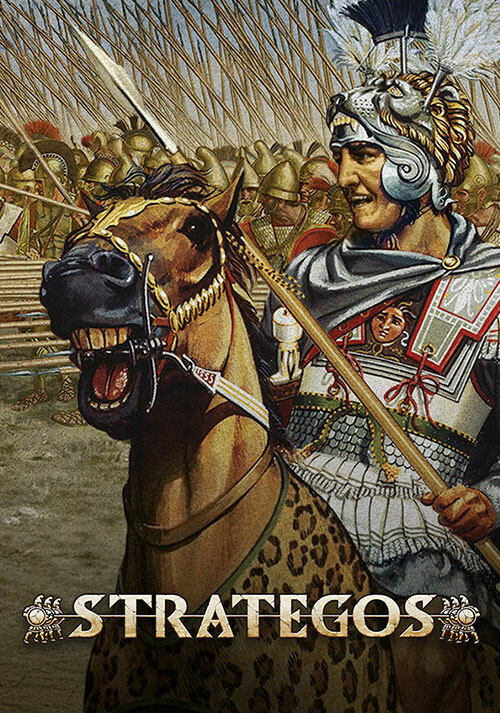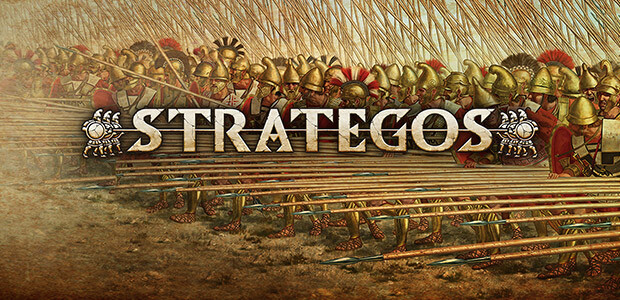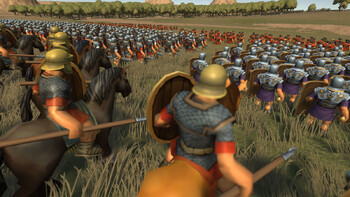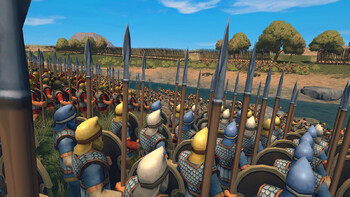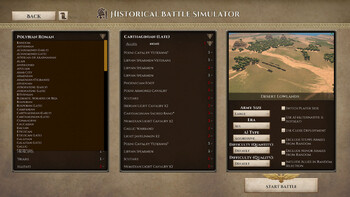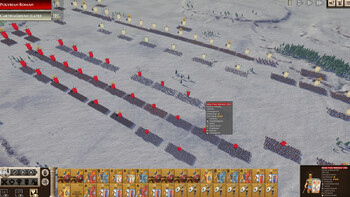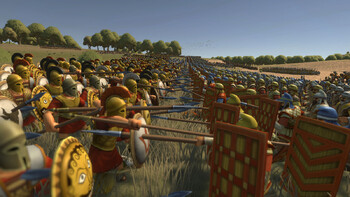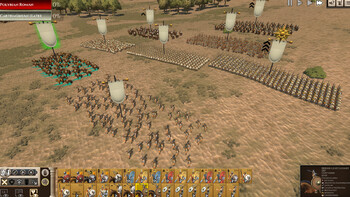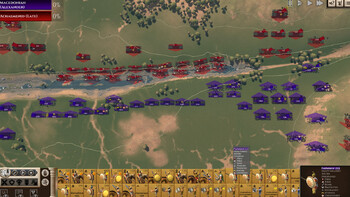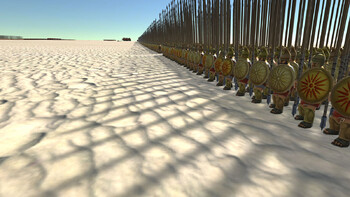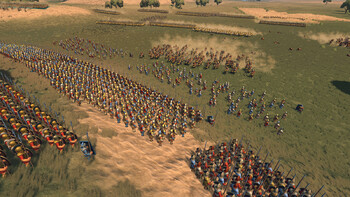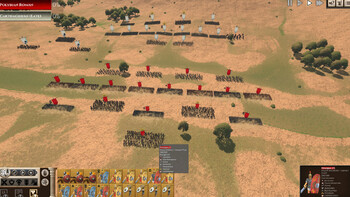Description of Strategos
Buy Strategos as a Steam key at Gamesplanet.com
Simulate Historical Battles
Simulate large scale warfare with the armies of antiquity in Strategos. With thousands of men on screen, you can recreate real or speculative historical battles between the major and minor powers of the ancient Mediterranean.
Manage Complex Mechanics
Strategos is an ancients wargame with large scale formation movements and disorder, unordered charges, pursuing, evading, routing and morale shocks, fog of war, terrain effects, flanking and command and control simulations that bring a hardcore tabletop feel to digital, real-time wargaming.
Command the Armies of Classical Antiquity
The armies of Strategos span nearly a thousand years of the classical period, from the Hoplites and Immortals of the Persian Wars, to the rise of the Sasanian Empire against Imperial Rome.
Master Advanced Command and Control
An advanced command and control simulation encourages the player to think about the positioning and use of their generals, and when to commit them in order to balance giving orders, sending couriers, providing morale support, and fighting in direct combat.
Select From a Huge Number of Units and Factions
The game contains over 250 unique units and nearly 120 unique factions, including the various Hellenic Empires, The Achaemenid Persian Empire, Rome and Carthage across different eras, Gallic, Germanic and Iberian tribes, Umbrians, Samnites and other native Italians, the major city states of ancient Greece, the Thracians, and more.
Customize Battles
Custom battle options include selection of army lists, allies, units, army sizes, era, map, deployment distance and sides, difficulty, AI type/aggression, whether to use AI at all (alternative is hotseat), and optional randomization of army lists with options to filter random armies by era, importance, and whether they are steppe armies. Current historical battles include Issos and Raphia, with more to come.
Factions:
- Abyssinian/Aksumite
- Early (Persian Wars) and Later (Alexander) Achaemenid Empire
- Aitolian
- Antigonid
- Alan
- Apulian
- Armenian (Tigranes and non-Tigranes)
- Athenian
- Atropatene (Early/Late)
- Bithynian
- Blemmye/Nobades
- Bosporan
- Campanian
- Carthaginian (Early/Late)
- Commagene
- Caucasian
- Dacian
- Etruscan
- Galatian
- Gallic
- Georgian
- Germanic
- Germanic (Later) Horse/Foot Tribes
- Graeco-Bactrian
- Graeco-Indian
- Early Hoplite Greek (Later Hoplite Greek armies are distinguished by city state)
- Hellenistic Greek
- Hasmonean Jewish
- Iapygian
- Illyrian (Early/Late
- Indo-Parthian
- Indo-Skythian
- Italian Tribes
- Judaean
- Kappadokian
- Kushan (Early/Late)
- Kyrenean Greek (Early/Late)
- Latin
- Libyan
- Ligurian
- Lucanian
- Lydian
- Lykian
- Lysimachid
- Maccabean Jewish
- Macedonian (Early, Alexander, Late Alexander, Early Successor, and Late Successor)
- Massalian
- Meroitic Kushite
- Moorish
- Nabataean
- Numidian (Early/Late)
- Paionian
- Palmyran
- Parthian
- Pergamenid (Early/Late)
- Phokian
- Pontic (Mithridates Early/Late, and Pre-Mithridates)
- Ptolemaic (Early, Mid-Early, Mid-Late, Late)
- Pyrrhic (Early/Late)
- Rhoxolani
- Roman (Tullian, Camillan, Polybian, Marian, Early Imperial, and Mid Imperial)
- Saka
- Samnite
- Sarmatian
- Sassanid (Early)
- Seleucid (Early, Mid-Early, Mid-Late, Late)
- Skythian
- Slave Revolt
- Spanish (Iberian, Celtiberian, Lusitanian, and Sertorius)
- Spartan
- Spartan (Hellenistic)
- Syracusan
- Tarantine
- Theban
- Thessalian
- Thracian (Early, Gallic, Hellenized, and Roman Client)
- Umbrian


